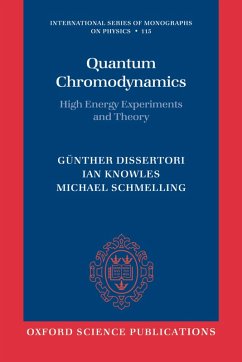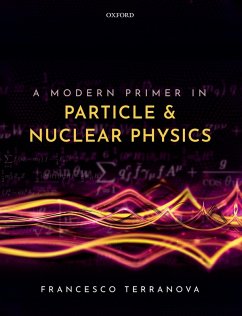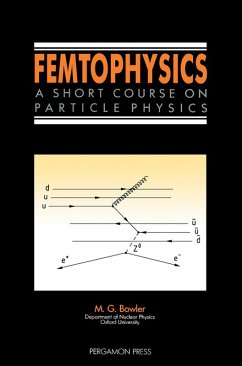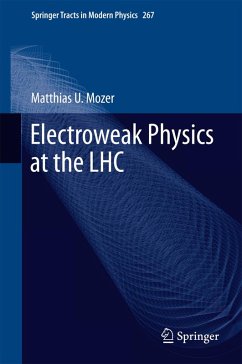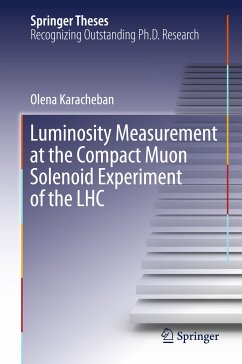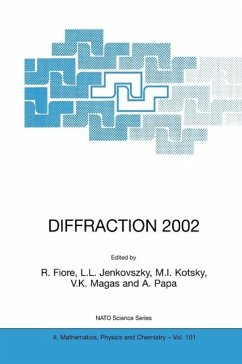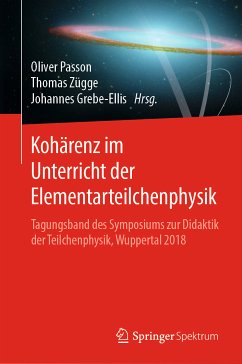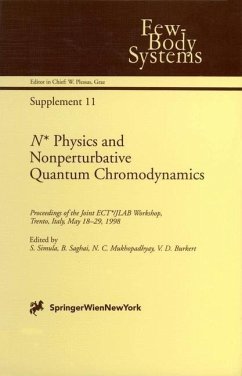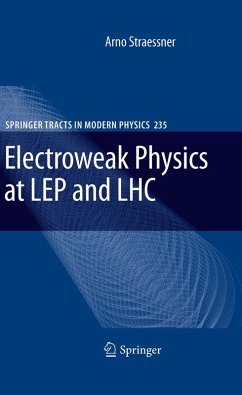
The Black Book of Quantum Chromodynamics -- A Primer for the LHC Era (eBook, PDF)
A Primer for the LHC Era

PAYBACK Punkte
25 °P sammeln!
This is an open access title. It is available to read and download as a free PDF version on Oxford Academic and is made available under a Creative Commons Attribution 4.0 licence. The Black Book of Quantum Chromodynamics is an in-depth introduction to the particle physics of current and future experiments at particle accelerators. The book offers the reader an overview of practically all aspects of the strong interaction necessary to understand and appreciate modern particle phenomenology at the energy frontier. It assumes a working knowledge of quantum field theory at the level of introductor...
This is an open access title. It is available to read and download as a free PDF version on Oxford Academic and is made available under a Creative Commons Attribution 4.0 licence. The Black Book of Quantum Chromodynamics is an in-depth introduction to the particle physics of current and future experiments at particle accelerators. The book offers the reader an overview of practically all aspects of the strong interaction necessary to understand and appreciate modern particle phenomenology at the energy frontier. It assumes a working knowledge of quantum field theory at the level of introductory textbooks used for advanced undergraduate or in standard postgraduate lectures. The book expands this knowledge with an intuitive understanding of relevant physical concepts, an introduction to modern techniques, and their application to the phenomenology of the strong interaction at the highest energies. Aimed at graduate students and researchers, it also serves as a comprehensive reference for LHC experimenters and theorists. This book offers an exhaustive presentation of the technologies developed and used by practitioners in the field of fixed-order perturbation theory and an overview of results relevant for the ongoing research programme at the LHC. It includes an in-depth description of various analytic resummation techniques, which form the basis for our understanding of the QCD radiation pattern and how strong production processes manifest themselves in data, and a concise discussion of numerical resummation through parton showers, which form the basis of event generators for the simulation of LHC physics, and their matching and merging with fixed-order matrix elements. It also gives a detailed presentation of the physics behind the parton distribution functions, which are a necessary ingredient for every calculation relevant for physics at hadron colliders such as the LHC, and an introduction to non-perturbative aspects of the strong interaction, including inclusive observables such as total and elastic cross sections, and non-trivial effects such as multiple parton interactions and hadronization. The book concludes with a useful overview contextualising data from previous experiments such as the Tevatron and the Run I of the LHC which have shaped our understanding of QCD at hadron colliders.
Dieser Download kann aus rechtlichen Gründen nur mit Rechnungsadresse in A, B, BG, CY, CZ, D, DK, EW, E, FIN, F, GR, HR, H, IRL, I, LT, L, LR, M, NL, PL, P, R, S, SLO, SK ausgeliefert werden.





